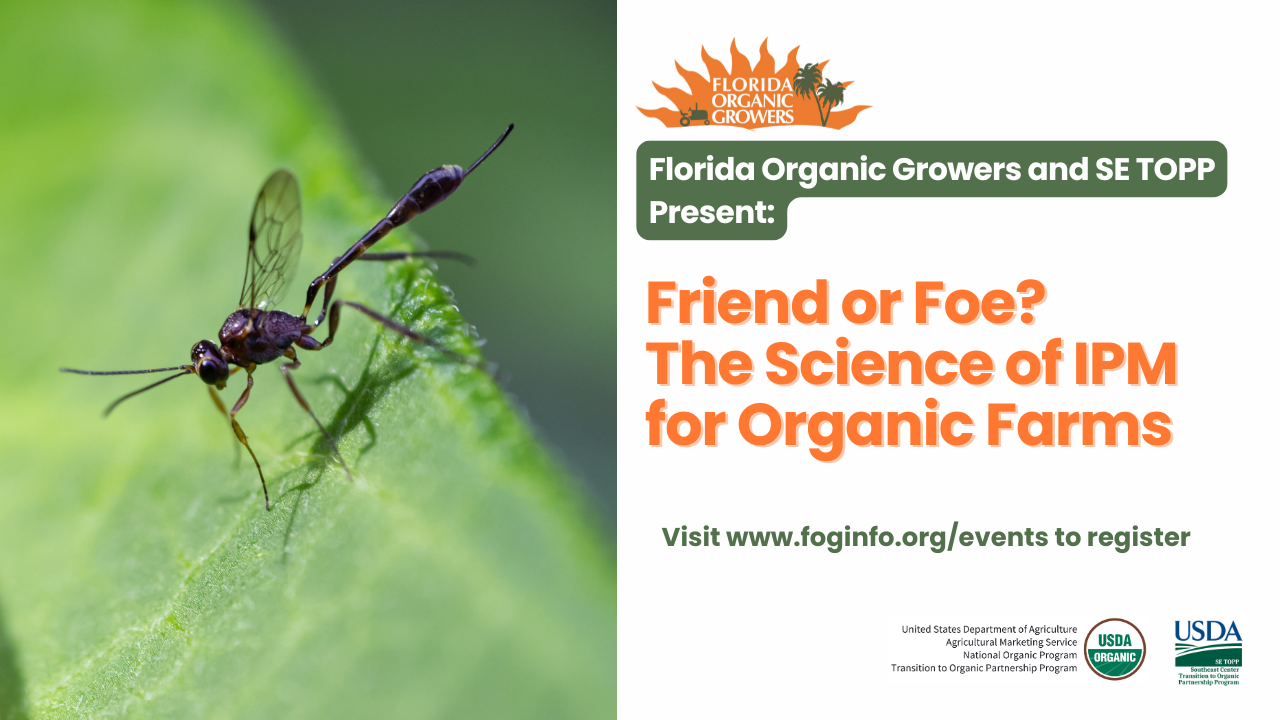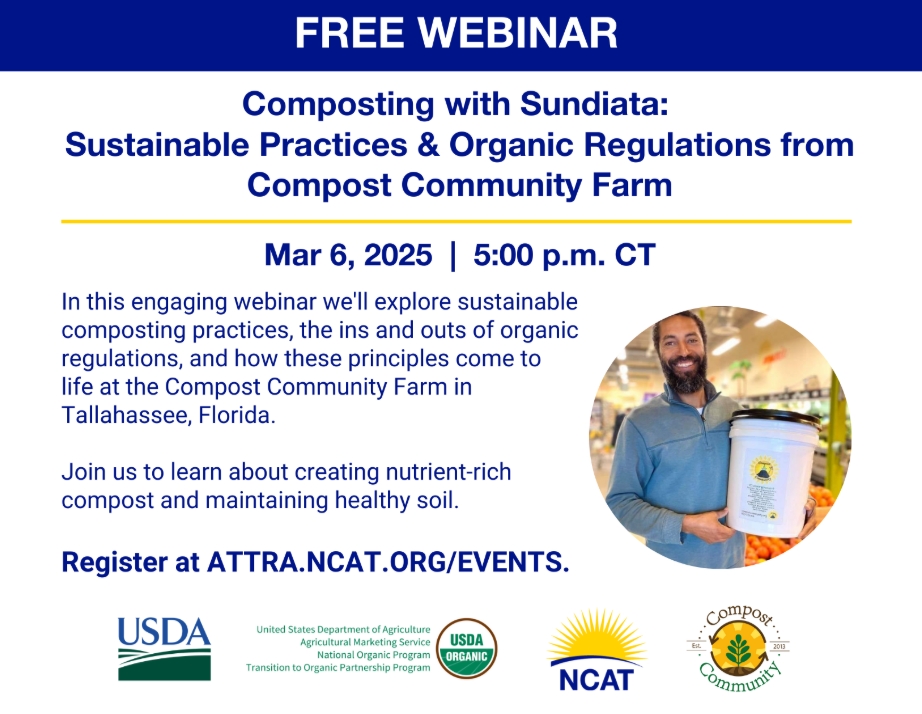Do you have questions about what is and isn’t allowed in organic systems? Read through this guide to find Montana specific answers to these questions and more!
Resources Category: Organic Inputs and Materials
Identify approved organic inputs and materials essential for organic farming. Access guidance on sourcing, application methods, and compliance to meet organic standards.
Webinar: Friend or Foe? The Science of IPM for Organic Farms
In this expert-led webinar, Dr. Oscar E. Liburd, Professor of Fruit and Vegetable Entomology at the University of Florida, shares insights into Integrated Pest Management (IPM) for farmers. Discover how beneficial insects, companion planting, and cover crops can naturally control pests, explore the latest research on biological and ecological pest control methods, and learn how… Continue reading Webinar: Friend or Foe? The Science of IPM for Organic Farms
Virtual Farm Tour – Love is Love Cooperative Farm
In this virtual farm tour, hear tips on organic production, marketing, and infrastructure from seasoned organic farmer and Southeast Transition to Organic Partnership Program (SE TOPP) Mentor Joe Reynolds of Love is Love Cooperative Farm. Located in Mansfield Georgia, Love is Love uses innovative approaches to organic farming. Joe discusses their strategies for community engagement,… Continue reading Virtual Farm Tour – Love is Love Cooperative Farm
USDA GAP-Organic Crossover Guide
A 5-page guide explaining the major similarities and differences between the requirements for USDA Organic certification vs USDA Good Agricultural Practices (GAP) certification.
Webinar – Composting 101 with Sundiata from Compost Community
In this webinar, NCAT Sustainable Agriculture Specialist Gabriella Soto-Velez teams up with Sundiata from Compost Community in Tallahassee, Florida, to dive deep into composting techniques, soil health, and the power of the soil-food web!
Organic-approved Pest Control Materials (Center for Arkansas Farms and Food)
Center for Arkansas Farms and Food (CAFF) developed this webpage resource to offer some best management practices for addressing Japanese beetles, cucumber beetles, cabbage moth, tomato fruit worm, Colorado potato beetle, leaf hoppers, stink bugs, harlequin bug, tarnished plant bug, squash vine borer. There are quite a few products available that can be used in… Continue reading Organic-approved Pest Control Materials (Center for Arkansas Farms and Food)
Organic Herbicides: Using Homeplate to clean up weeds around plastic mulch (Center for Arkansas Farms and Food)
Homeplate (active ingredient caprylic acid) is an organic herbicide that has been on the market for 15+ years and is an effective product for weed burndown. At the CAFF Farm, in order to kill the large, mature weeds around our plasticulture beds, we needed to apply Homeplate at 8 gallons per 1,000 sq ft and… Continue reading Organic Herbicides: Using Homeplate to clean up weeds around plastic mulch (Center for Arkansas Farms and Food)
Organic Potting Mixes (Center for Arkansas Farms and Food)
Riley from the Center for Arkansas Farms and Food (CAFF) discussed the NOP requirements for potting mixes used in organic farming and also walks through what it looks like to make our own organic potting mix. Learn more about organic production at https://arkansasorganicag.uada.edu/. RESOURCES: POTTING MIXES FOR CERTIFIED ORGANIC PRODUCTION: https://attra.ncat.org/publication/po… LIST OF ORGANIC CERTIFIERS… Continue reading Organic Potting Mixes (Center for Arkansas Farms and Food)
Input Materials Fact Sheet
1-page fact sheet providing basic guidance/overview on input materials for organic production.
Podcast Series 2: “Organic Odyssey”
Ongoing podcast series produced by Cal Poly Students. Episodes are released monthly. Season 2 began on September 23, 2024.





